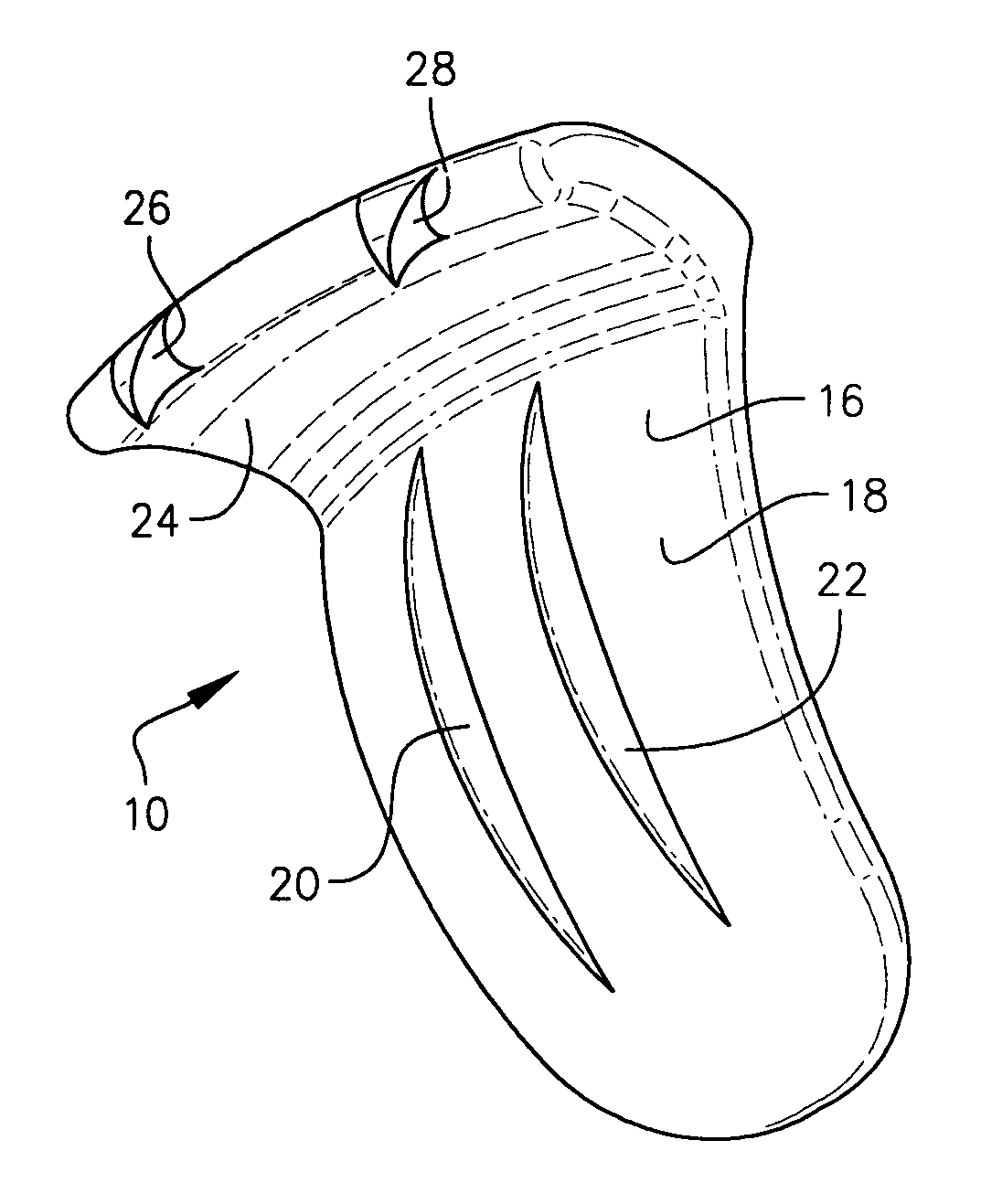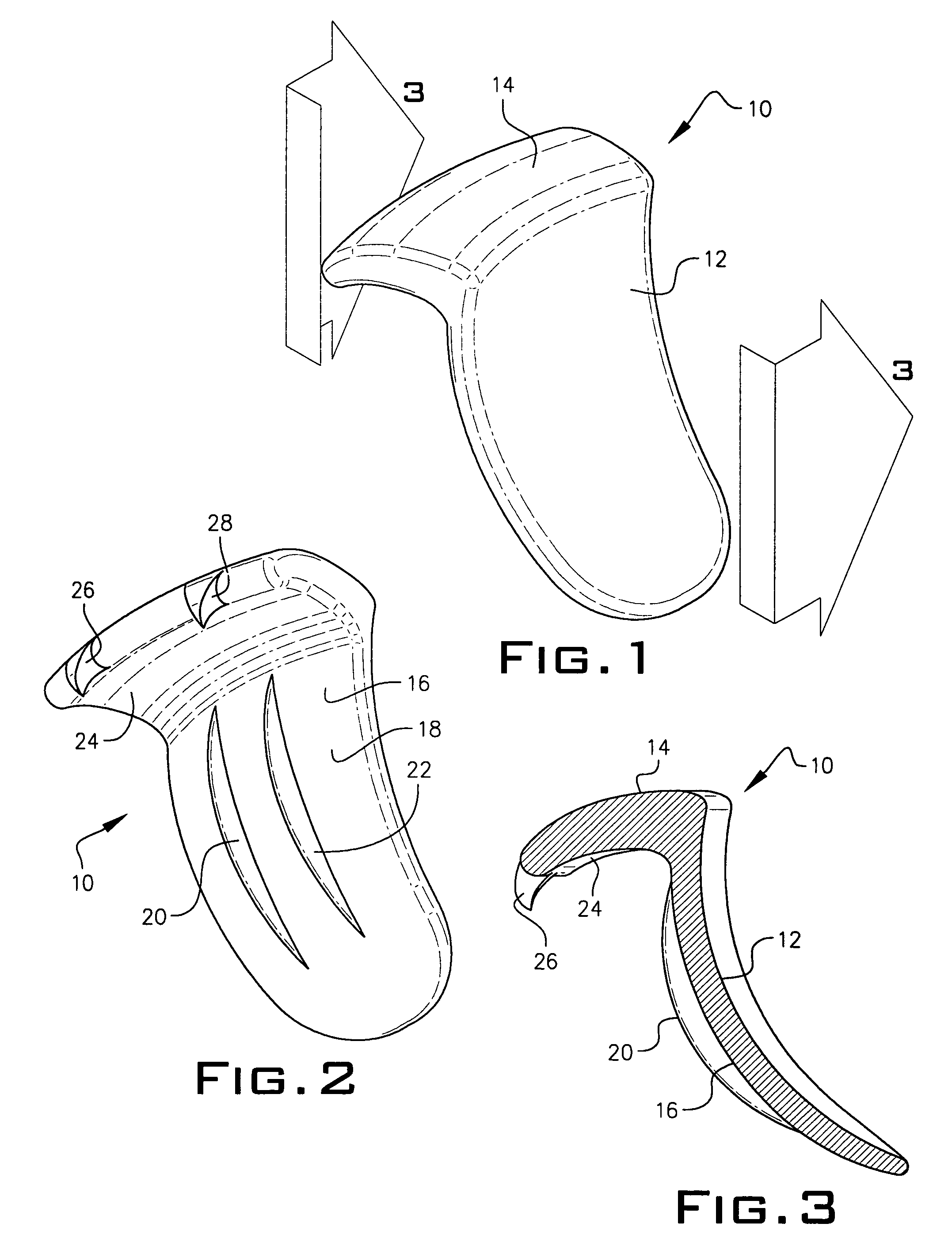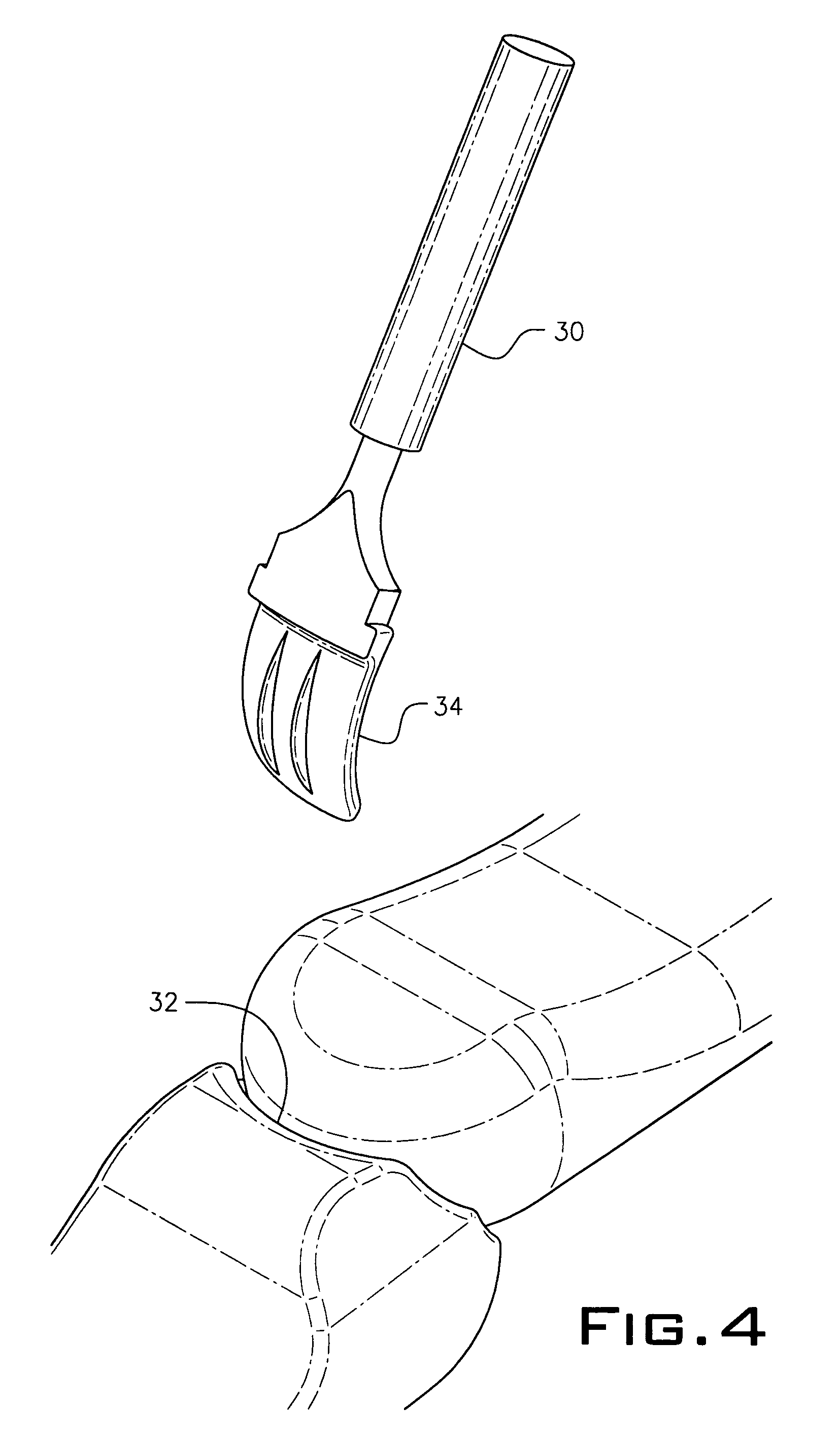Implant device used in minimally invasive facet joint hemi-arthroplasty
a technology for facet joint hemi-arthroplasty and implant device, which is applied in the field of implant device for minimally invasive spine surgery, can solve the problems of non-surgical symptomatic treatment, prolonged recovery time of present art, and uncertain outcomes, and achieves less traumatic, less recovery time, and minimal invasive
- Summary
- Abstract
- Description
- Claims
- Application Information
AI Technical Summary
Benefits of technology
Problems solved by technology
Method used
Image
Examples
Embodiment Construction
[0021]Referring to FIG. 1, the prosthetic implant 10 of this invention has a highly polished concave outside back portion 12 and a convex highly polished surface on a top portion 14. The highly polished surface is a cobalt-chrome alloy, a titanium alloy or other biologically acceptable material capable of forming a smooth highly polished surface. Referring to FIG. 2, an inside convex surface is textured 18 to encourage new bone growth and adhesion. Blades 20 and 22 attached to inside surface 16 bite into bone to promote adhesion. The bottom surface 24 of the top portion of implant 10 is concave to fit tightly over a bone as shown in FIGS. 7 and 8. Teeth26 and 28 are used for imbedding into adjacent bone to prevent movement of implant 10.
[0022]Prior to imbedding the implant in the facet joint 32, a preparation tool 30 is used to slightly spread the joint 32. Tool end 34 is inserted into the joint 32 to provide sufficient space for inserting implant 10 into joint 32 as seen in FIGS. 7...
PUM
 Login to View More
Login to View More Abstract
Description
Claims
Application Information
 Login to View More
Login to View More - R&D
- Intellectual Property
- Life Sciences
- Materials
- Tech Scout
- Unparalleled Data Quality
- Higher Quality Content
- 60% Fewer Hallucinations
Browse by: Latest US Patents, China's latest patents, Technical Efficacy Thesaurus, Application Domain, Technology Topic, Popular Technical Reports.
© 2025 PatSnap. All rights reserved.Legal|Privacy policy|Modern Slavery Act Transparency Statement|Sitemap|About US| Contact US: help@patsnap.com



